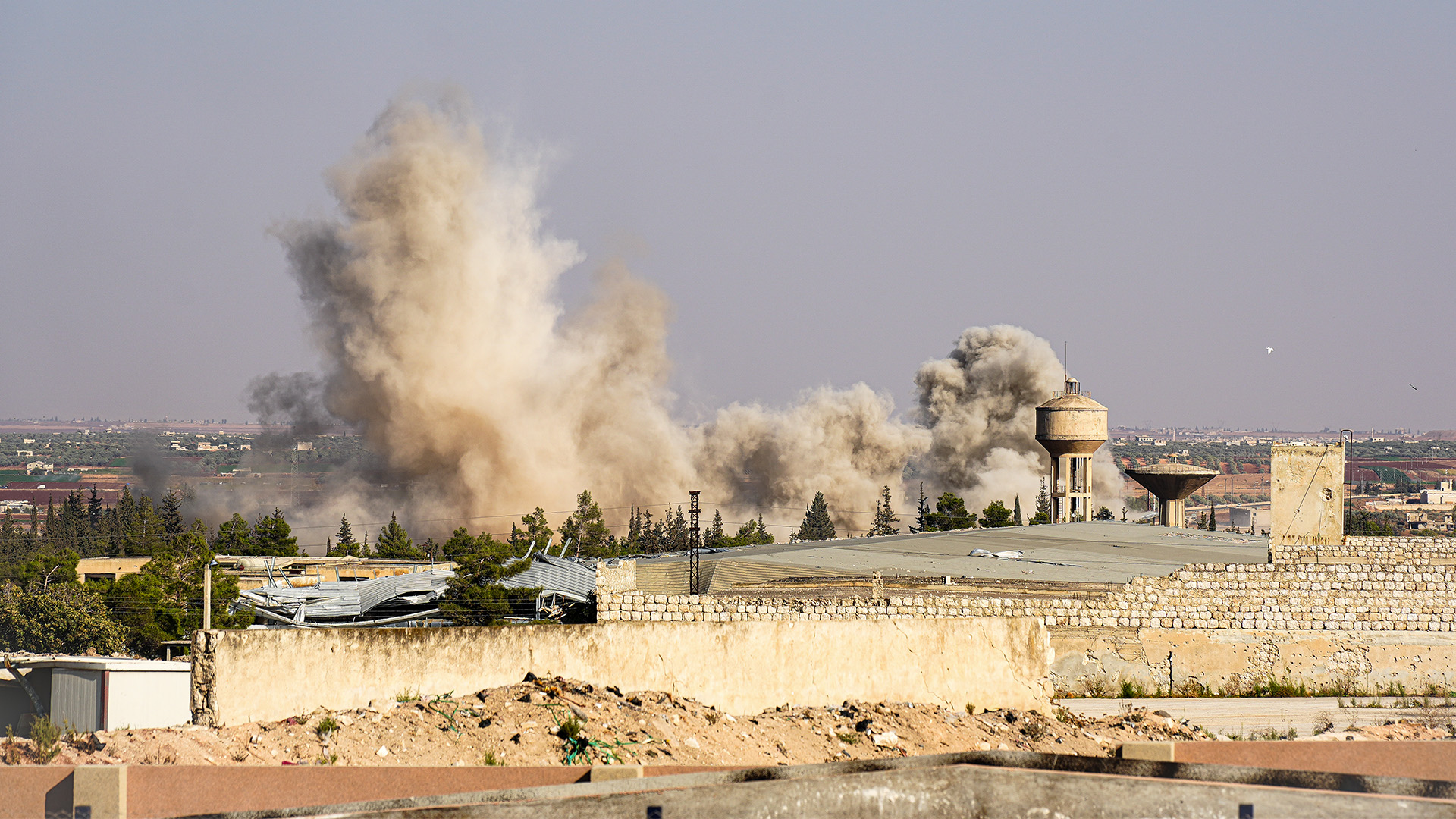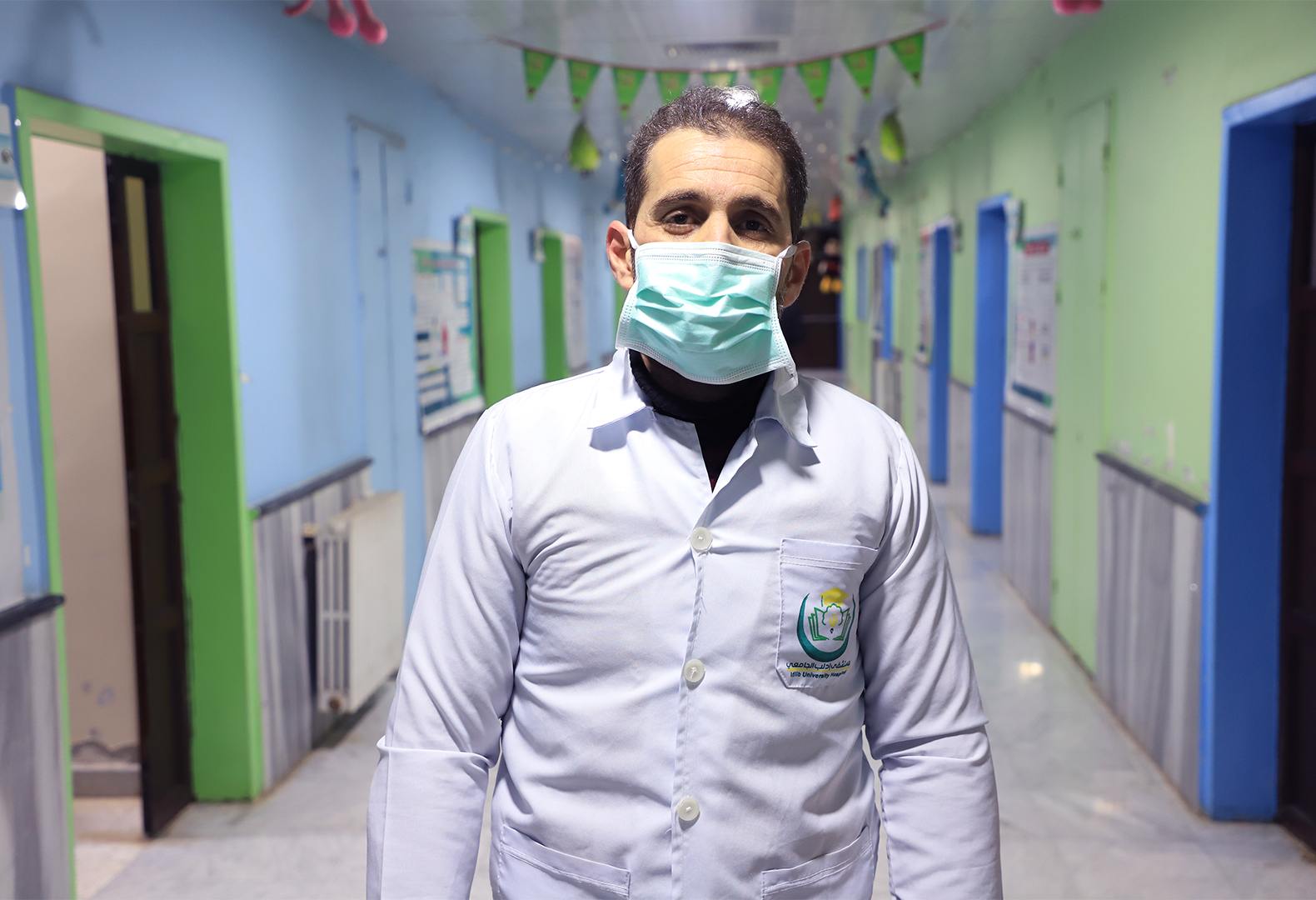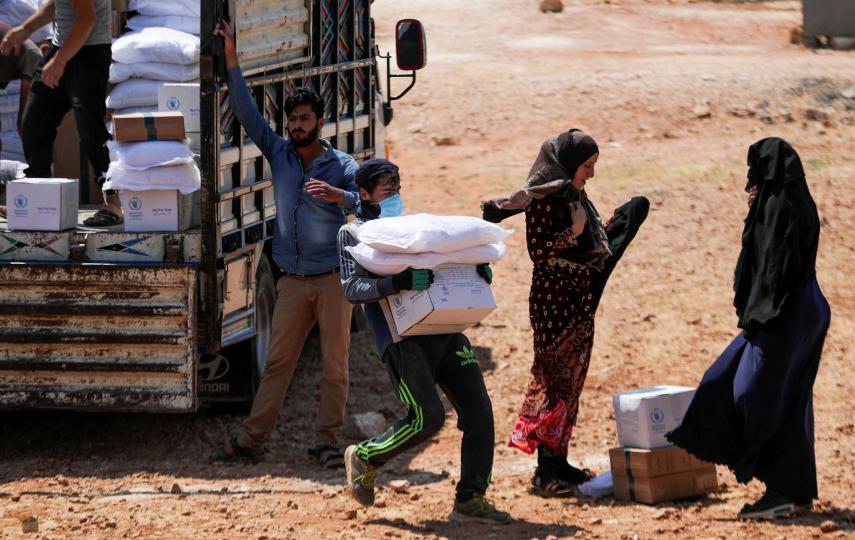Winter for Syrians displaced by their country’s long war has always been hard. Every year, tents are destroyed by rain and snow, temporary shelters are nearly impossible to heat, and jobs hard to come by.
This time around, nearly one year since the 6 February massive earthquakes killed more than 55,000 people across southern Türkiye and northern Syria, it’s even worse.
Aid cuts, escalating violence, and the lasting impacts of the quakes have made it a particularly trying time, especially in parts of the northwest controlled by rebels who oppose the government of Syrian President Bashar al-Assad. This region, already in crisis before the disaster, is home to more than more than 4.5 million people, including around 2.9 million who are forcibly displaced.
Syrian photojournalist Abd Almajed Alkarh, who lives in Idlib, spoke to residents of the northwest about what the cold has meant for them this year.
‘I don’t have enough money for heating’

For Mustapha Akoush, a 38-year-old from the town of al-Atareb in the west of Aleppo province, the last year has been one of grief and struggle. The earthquakes destroyed his home and killed three of his eight children. After receiving treatment for their own injuries — Akoush was hospitalised for cracked ribs — the family, now made up of his wife and five surviving children, spent the next 11 months moving between camps, a caravan, and other temporary housing.
This January, they moved to a new building in northern Idlib, built by an NGO for people who lost their homes in the quakes. But daily life remains extremely difficult. Akoush hasn’t found work, and expenses are piling up for food, water, and heating. Some family members still have lingering medical needs he can’t afford. He says that aside from the new apartment, he hasn’t had any significant help from aid groups. Right now, keeping the new place warm is Akoush’s biggest worry.
“Winter this year is extremely severe, and I don’t have enough money for heating. Some good people have helped me out, but I can’t cover most of what my kids need: food, medicine, etc.” Akoush said. “The situation this year is miserable.”
‘It will hit children first’

While many live with family or rented accommodation, the UN estimates that 79% of those displaced in the northwest live in places with a “critical level of overcrowding that puts their health at risk”. Around 800,000 people are staying in tents.
In late January, heavy rain flooded some camps, destroying 233 tents and damaging around 1,800, according to the Syria Civil Defence (better known as the White Helmets). Aid groups say conditions are made worse by funding gaps. The UN asked for $5.41 billion for the aid it coordinates in Syria in 2023. It received just 37.8% of that figure, in addition to $389 million from a flash appeal right after the earthquakes.
The World Food Programme has massively scaled back the assistance it gives in Syria due to these shortages. Ahmed al-Hashem, social projects coordinator at Ataa Relief, an NGO that works in northern Syria, said he is particularly worried about how the cuts will impact society’s most vulnerable.
“Food shortages will hit children first, and then older people,” he said, noting that many people’s jobs are impacted when aid is cut, a major hit for a local economy that is already in deep distress. “It will also affect the economy, because of jobs in loading, transferring, and providing aid. Those people will lose their income, too.”
‘Bombing targets the future’

The past few months have seen an escalation in bombings by the Syrian government and its Russian allies; UN figures say at least 99 civilians have been killed since early October. Nada al-Rashed, a board member for the White Helmets, said the strikes have hit schools, hospitals, markets, and heavily populated civilian areas. She said it was “the most violent” time since rebels and the Syrian government signed a ceasefire almost four years ago, in March 2020.
The White Helmets recorded 1,322 separate attacks in northwest Syria over the course of 2023, and they have continued into this year.
“The bombing not only took people’s lives,” said al-Rashed, “but also the future of Syrians, by targeting food security, schools, and industries that provide jobs for thousands of civilians in northwest Syria.”
‘The fear of bombing is always there’

Ahmed al-Shami, a 32-year-old father of two who is originally from Darayya — near Damascus – but who is now living as one of the displaced in Idlib, said this round of bombing feels different to previous escalations.
“Life has changed significantly. The fear of bombing is always there,” he said. “People don’t feel safe to walk in the markets, so shops aren’t bringing any new goods… Many people have left.”
Al-Shami said there’s nowhere to go due to the cold weather and he spends most of the time inside his house.
“Recently, a missile fell close to our house, outside our door,” he said. “It was horrible. It was so hard for me when my daughter heard the sounds of the explosion. She was so scared, she ran to me. We hid in the bathroom during the bombing.”
‘State of emergency’
Every winter, the cold weather brings an increase in respiratory illnesses, which can be deadly — especially in very young children — if severe and untreated.
This year, doctors in Idlib say they’re struggling to treat the most severe cases due to a longstanding shortage of supplies like incubators, respirators, and beds in intensive care.
Mohammed al-Mousa, pictured above with his six-month-old son at Idlib University Hospital, lives in the Idlib town of Salqin. He said it was extremely difficult to find his son a bed for his severe chest infection, but that he was eventually admitted and spent several days in intensive care.
Zuhair al-Qarrat, manager of the Idlib health directorate, said that in the past few years his colleagues were able to handle the caseload by transferring patients to Turkish hospitals across the border. But with many of those hospitals now damaged by the earthquakes, transfers are down.
He said Idlib was in a “state of emergency” when it came to treating respiratory illnesses.
Al-Qarrat believes that an increase in respiratory illnesses may also be linked to poor living conditions in camps. He noted that because they can’t afford anything else, people burn “coal, plastic, shoes, and any other materials” to stay warm.
‘We ask for support’

Respiratory illnesses can be deadly if left untreated in young children. Dr Mohammed Obedian, head of paediatrics at Idlib University Hospital, said the needs far outstrip the capacity of northwest Syria’s medical facilities.
“We ask the international community and humanitarian organisations to provide medical support,” he said. “More hospitals, more beds, respirators, and intensive care units: These are the basics we need to treat these cases.”
Edited by Annie Slemrod.





